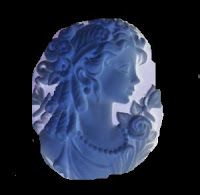It would be a decided slight to the women who actually endured Victorian Britain to suggest that the modern-day experience of womanhood is, in any physical sense, all that comparable. Access to education, political expression and meaningful employment opportunities were not luxuries afforded to the lady-folk of the period and their painfully prescribed existence perhaps explains why the works of Edith Nesbit, Henrik Ibsen and the Bronte sisters were, originally, so frostily received. Fancy having the audicity to suggest that women are able to act, think and speak independently and without any consent, invitation or supervision from a dashing male counterpart? That they can make a legitimate contribution to society without getting married and having babies. The very idea!
Suffrage and the 1918 and 1928 acts allowing women in Britain to vote did, in many ways, mark the beginning of a new-found social freedom for the female of the species. And yet, alas! Three waves of feminism later I still can't help but feel that for all the rhetoric, for all the bills passed about parliament, for all the Equal Opportunities forms on which I've put a cross in the 'F' box under 'Sex' (resisting the urge to scribble the words 'Oooh yes please' childishly in the margin) some of that suppresive Victoriana sentiment has survived. Modern-day corsets may not come in the explicit form of ornate lace bodices but that doesn't mean that we are not still living in the 'Doll's House.' Contemporary constraints are shrewder, sneakier; bordering, in fact, on the subconscious - but they are still there.
At present, for example, I feel it is almost impossible to open the Sunday paper without reading an article on why it is important to settle for any man rather than no man on the approach to turning thirty or how, as a woman, you never truly realise your life's purpose until you've given birth. These editorials always, startlingly, have female bylines printed beneath them, but I, of course, remain unconvinced. It's all one big George Eliot style conspiracy. Such articles are obviously written by the male descendents of Victorian Lords wanting to keep women in their place where they belong. I don't know if my hackles are raised merely because I'm their target audience: female, unmarried and pushing thirty but there seems to have been a glut of them lately and they are, at least to my eyes, most nauseating in nature.
Of course that alone is not enough to suggest that we are all just next-generation Noras and Torvalds...but wait! There's more. Even the words used to describe single men and women have positive and negative connotations respectively. The word bachelor, first used to describe a single man by Chaucer, is suggestive of somebody at the beginning of their life's career; yet to achieve great things. Spinster on the other hand, a word stemming from descriptions of spinning women in the sixteenth century, evokes a person who is lowly, destitute and possibly even redundant of any further use. Additionally, in order to 'have it all' these days women must have a successful career, a man and a baby in tow; accomplishment in employment alone is not sufficient to suggest success. Not for a woman anyway. Plus: ever noticed how books, films and TV shows portray unattached women as outcasts, depressives or man-eating temptresses who, rather literally, fill the void with unearthly amounts of sex? (Anne Yeo, Louise Sawyer, Susana Kaysen, Miss Bates, Bridget Jones, Elliot Reid and poor old Miss Tonks - the list goes ever on). Coincidence that they happen to be uninterested in/ unable to secure a marital union? I think not.
I realise, in my plight to convince you in eight hundred words that Victorian values have filtered down, if only in a diluted form, through the ages, that I may be coming across as somewhat anti-marriage. In fact this is not true at all. Marriage is fantastic...if it's entered into for the right reasons. The right reasons do not include: because you're turning thirty (or insert relevant milestone), because you want a baby or because you feel you will somehow be incomplete/inadequate unless you drag some unwitting fool down the aisle. Do not be deceived by the convenient social veneer we have constructed in the name of political correctness. Look close enough and you will see that most relationship editorials, advertisements, plot-lines and, in fact, just about every ounce of media output transmits the underlying message that a woman's rightful place is at a man's side where he can cast his sinewy shadow over her. If you're not in that position then, let's face it, there must be something fundamentally wrong with you and your life. You'd better buy that product/marry the wrong person/get pregnant, and fast! Or not.
In the wise old words of my Grandma: 'Better you be on the shelf than in the wrong cupboard.' I may have spent most of my years 'on the shelf' dusting myself off from various heart-aches and breaks but at least I won't find myself captive in an unbearably confined living situation for the rest of my days. As April Wheeler, Bertha Rochester and Laura Brown found out the hard way marriage is for life, not just for the photographs.
This is a Guest Post from Helen Cox. She is a photo-taking, book-loving, film-obsessed columnist and copywriter from North London. She is currently teaching English at a challenging school on the outskirts of the city whilst finishing her first novel.

No comments:
Post a Comment